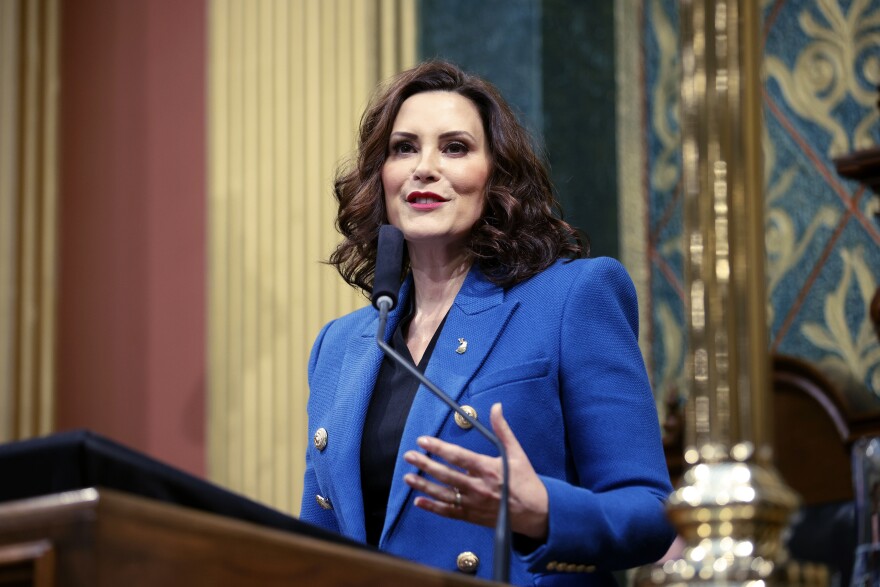Michigan tax filers will not receive $180 checks under a sweeping tax proposal passed by the state Senate late Tuesday night, advancing the bills to Gov. Gretchen Whitmer's desk without a key promise in the start of her second-term.
The package, if signed by the governor, will provide relief to retirees by phasing out taxes on public and private pensions and would help lower-income families through significant expansion of the state’s Earned Income Tax Credit from the current 6% to a 30% match of the federal rate. It could also send up to $1.5 billion to the state's business incentive fund.
But after weeks of negotiations, and a nearly 13-hour session day Tuesday, Democrats were unable garner the necessary support from Republicans to include $180 checks for every tax filer in the proposal.
“It’s unfortunate that those won’t be going out,” Senate Majority Leader Winnie Brinks said Tuesday. “We were hoping that we would be able to get Republican support for that. But unfortunately, they were unwilling to do so.”
The $180 checks were unveiled in early February as part of Whitmer's plan that aimed to help residents with rising costs. The plan, according to the Democratic governor, would have provided the “largest tax break in decades.”
As the bill was written, the $180 checks would have only been sent out if the bill was implemented by mid-April of this year.
Republicans for weeks had refused to side with Democrats to make that immediate effect happen, accusing Whitmer of using the $180 checks to sidestep an automatic income tax rate reduction that would be triggered by the state’s high revenue.
The nonpartisan House fiscal agency said in January that the budget surplus could reach over $9 billion by fall and that the state’s revenues could activate a trigger that would permanently lower the income tax rate from 4.25% to 4.05%.
The $180 checks would have cost the state around $800 million, lowering revenues enough to avoid the trigger. The income tax cut is now “likely,” Brinks said after Tuesday’s vote.
“Senate Republicans protected the automatic income tax rollback that is due to millions of Michigan residents who need permanently lowered taxes, not a one-time gimmick that disappears in one trip to the grocery store,” Senate Republican Leader Aric Nesbitt said in a statement.
In a statement Wednesday morning, Whitmer celebrated the passage of Tuesday's tax breaks for the state's retirees and low-wage workers, saying it will put “money back in people’s pockets to help them pay the bills and put food on the table.”
The package also created ongoing funding for the state's business incentive efforts by sending $500 million a year in corporate income tax revenue to the fund through 2026, totaling up to $1.5 billion over three years.
The fund, known as the Strategic Outreach and Attraction Reserve, has been used to attract large corporate business projects to the state through tax incentives. Republicans have criticized the fund as being a “corporate slush fund.”
Earlier this month, a large tax incentive package was approved for a $3.5 billion Ford project planned in the state. The state is expected to spend over $1 billion in tax incentives and site preparations for the project.


